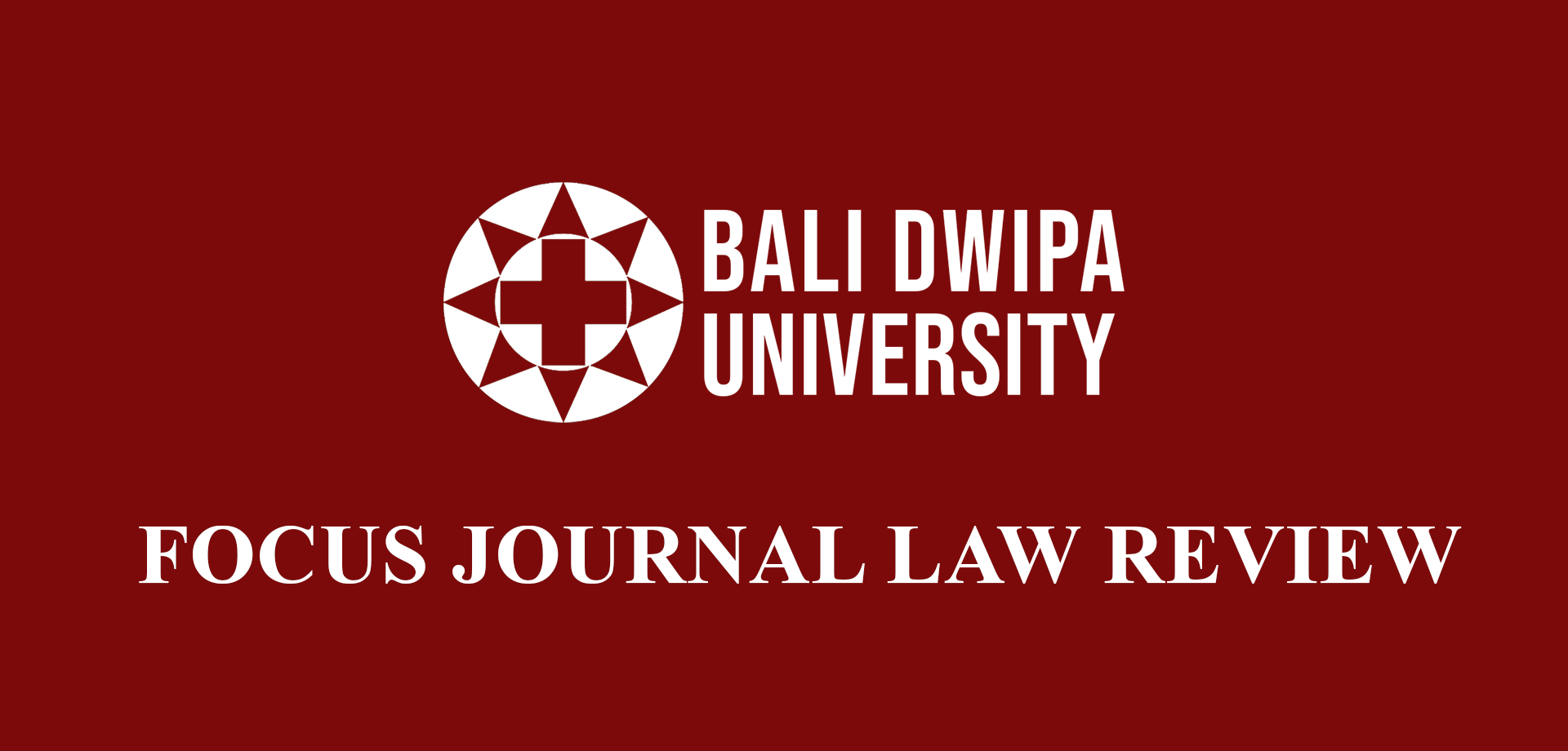About the Journal

| Journal title Initials Frequency DOI Online ISSN Editor-in-chief Publisher |
: Focus Journal Law Review : FJL : 2 issues per year (November and May) : 10.62795 : 2829-7415 : Dr. Ir. I Wayan Adnyana, S.H., M.Kn. : Universitas Bali Dwipa |
Focus Journal Law Review (FJL) is a anonymous peer-reviewed journal dedicated to the publication of quality research results in the field of law. All publications in Focus Journal Law Review (FJL) are open access which allows articles to be freely available online without any subscription.
Online ISSN: 2829-7415
Current Issue
Vol. 5 No. 2 (2025): Focus Journal Law Review Vol. 5 No. 2
View All Issues



 Online ISSN:
Online ISSN:  Article Template
Article Template  Open Access Policy
Open Access Policy  Aims & Scope
Aims & Scope  Editorial Team
Editorial Team  Author Guidelines
Author Guidelines  Publication Ethics
Publication Ethics  Peer Review Process
Peer Review Process  Copyright & Licensing
Copyright & Licensing  Article Processing Charge
Article Processing Charge Contact
Contact  About the Journal
About the Journal Plagiarism Policy
Plagiarism Policy  Archiving Policy
Archiving Policy





